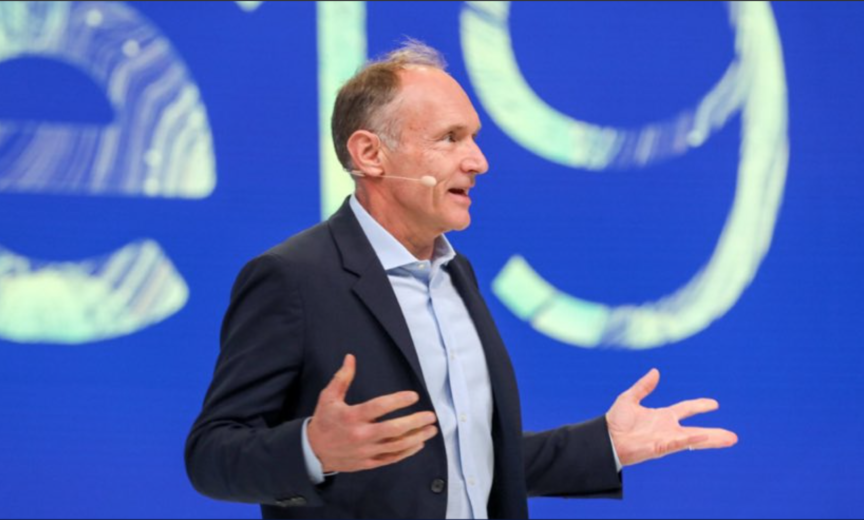Sir Tim Berners-Lee, inventor of the World Wide Web, developed what has become the most fundamental arena for both businesses and society to play in.
The internet has evolved since its inception in 1989; some argue for the worse and others, the better.
What is clear, however, is that its transformative power has changed how businesses operate and how people engage with each other.
We’re in the internet era, and Berners-Lee explains the challenges of this at Oktane19.
The inventor’s view
“It seemed like a good idea at the time,” opened Berners-Lee, half-jokingly.
The world is certainly better for it, “but in the last few years, a different mindset has emerged,” he stated.
“The arc of the web has got complicated.”
The initial purpose of the World Wide Web? A place for innovation and an environment of neutrality
But, a few things have happened since then. At the 30-year-point, people have become worried about their personal data — but they “didn’t think about it very much until Cambridge Analytica,” said Berners-Lee.
He’s right and internet privacy has since become one the hottest topics in the news media.
The privacy risk, however, “is subtle,” he argued. “It’s realising that all this user generated data is being used to build profiles of me and everyone like me — for targeted ads and more importantly, voting manipulation.
“It’s not about the privacy of photographs, but where my data is abused.”
30 years on and the internet is in crisis
Quality is dying
Another point Berners-Lee touched upon, focused on quality. Back in the early days of the internet, people were directed to articles because of “quality and carefully curated links”.
But now, “bloggers are motivated by ad counts, and not by quality.”
And this desire for higher revenues from Google ads has driven the problem of fake news.
“Fake stuff gets the biggest ad clicks,” confirmed Berners-Lee. “There was one that said Hilary [Clinton] wanted [Donald] Trump to win” the 2016 presidential election.
“We designed the internet with the best intentions, but it’s ended up as something that misbehaves, at the macro level. The internet is now a commercial space.
The Solid project
“We can change things around now,” confidently stated Berners-Lee. The Solid project, based out of MIT, is an exciting project focused on separating the apps from the data.
From the website: it aims to radically change the way web applications work today, resulting in true data ownership as well as improved privacy.
“It could turn the internet on its head,” he said.
With Solid, “you can choose to share your data, to your doctor, for example. It’s about absolute control breaking down boundaries.”
Challenging assumptions
When it comes to professional data, people are happy to share it. “You want to paint your CV on public buses,” exclaimed Berners-Lee. “You want some data you want to be found easily – for professional reasons.”
It’s all about collaboration
“The Solid world is about all data in life,” continued Berners-Lee.
Some data you’ll share with a few people, and other sets you’ll share with more people.
Developers can then write collaborative apps to solve problems.
In the end, “the web is about powerful collaboration”.
“I hoped that 25 years ago this is what the web would produce. But, it has become more like TV.
“With the Solid platform we can get back to it becoming a more powerful collaboration medium.”
“We need to move away from the developers creating apps so that users buy something. But, instead the job should be delivering value to the user. That is what is important.”







